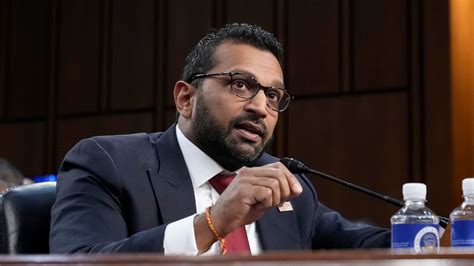
Bill Clinton strongly defended President Joe Biden’s cognitive abilities, dismissing concerns about his sharpness and mental fitness as unfounded, asserting that Biden is “sharp as ever.” Clinton’s remarks come amid ongoing scrutiny of Biden’s age and mental acuity as the 2024 presidential election approaches.
Former President Bill Clinton has vocally supported President Joe Biden, directly addressing and dismissing concerns related to Biden’s cognitive functions. During a recent appearance, Clinton asserted that Biden remains “sharp as ever,” countering the recurrent criticisms about the president’s mental fitness which have become a talking point, particularly among Republican circles, leading up to the 2024 election.
Clinton’s forceful defense aims to quell growing anxieties about Biden’s capacity to effectively handle the demands of the presidency, especially given his advanced age. At 81, Biden is already the oldest president in U.S. history, and his health and cognitive abilities have been intensely debated by political commentators, voters, and even some members of his own party.
“Joe Biden is sharp as ever,” Clinton stated emphatically, during a public event. He emphasized that Biden has the intellectual capacity and vigor required to navigate the complex challenges facing the United States and the global community. Clinton’s intervention is seen as significant due to his own experience as a two-term president and his enduring influence within the Democratic Party. His endorsement carries weight and serves as a counter-narrative to the criticisms frequently leveled against Biden.
The topic of Biden’s cognitive abilities has been fueled by a series of public gaffes, moments of apparent confusion, and instances where he has misspeaks or appeared disoriented. These incidents have been amplified by media coverage and social media, creating a perception of decline that many Democrats are eager to dispel.
The Republican Party has been particularly vocal in questioning Biden’s mental fitness, using his age and public appearances as fodder for political attacks. Prominent Republicans have openly suggested that Biden is not capable of serving another term, citing concerns about his memory, decision-making, and overall stamina. These criticisms are part of a broader strategy to undermine Biden’s credibility and appeal to voters who may be hesitant to support an octogenarian president.
However, Biden’s supporters argue that these concerns are overblown and politically motivated. They point to his long career in public service, his extensive policy knowledge, and his ability to negotiate complex deals as evidence of his continued competence. They also argue that some of the perceived gaffes are simply the result of Biden’s folksy style and tendency to speak off the cuff.
Several prominent Democrats have echoed Clinton’s sentiments, defending Biden’s cognitive health and dismissing the criticisms as partisan attacks. These supporters emphasize Biden’s decades of experience in public office, arguing that his policy expertise and deep understanding of governance far outweigh any concerns about his age. They also point to his track record of legislative achievements and his ability to lead the country through challenging times as evidence of his continued effectiveness.
The debate over Biden’s cognitive abilities is further complicated by the lack of concrete medical evidence. While Biden has released some information about his health, including a physical examination conducted by his physician, there has been no comprehensive cognitive assessment made public. This lack of transparency has fueled speculation and allowed critics to continue questioning his mental fitness without being definitively refuted.
Clinton’s intervention is not just about defending Biden; it is also about shoring up support for the Democratic Party as it heads into a crucial election year. With the 2024 presidential race shaping up to be closely contested, Democrats are eager to project an image of unity and confidence in their nominee. By publicly vouching for Biden’s cognitive abilities, Clinton is signaling to voters that the party stands firmly behind its leader and is prepared to fight for his reelection.
The former president’s endorsement also underscores the broader strategy of the Democratic Party to frame the election as a choice between experience and competence versus what they characterize as the extremism and divisiveness of the Republican Party. By highlighting Biden’s strengths and dismissing concerns about his age, Democrats aim to appeal to moderate voters who may be wary of both parties’ more extreme elements.
The impact of Clinton’s remarks on the electorate remains to be seen. While his endorsement carries significant weight, it is unlikely to completely silence the critics or resolve the underlying concerns about Biden’s age and mental fitness. However, it does provide a powerful counter-narrative that could help to reassure some voters and bolster support for the president.
Moreover, Clinton’s defense of Biden could also energize the Democratic base and encourage them to rally behind their nominee. By portraying the attacks on Biden’s cognitive abilities as unfair and politically motivated, Democrats can mobilize their supporters and motivate them to turn out in force in the upcoming election.
In addition to addressing the immediate concerns about Biden’s cognitive abilities, Clinton’s remarks also touch on a broader issue of ageism in politics. As the population ages, there is growing debate about the role of older people in leadership positions and the extent to which age should be a factor in evaluating a candidate’s qualifications.
Some argue that age brings wisdom, experience, and a long-term perspective that is valuable in political leadership. Others contend that age can lead to cognitive decline, decreased energy, and a lack of adaptability to changing circumstances. These competing perspectives are likely to continue shaping the debate over Biden’s fitness for office and the broader role of age in politics.
The conversation sparked by Clinton’s defense of Biden also extends to the responsibilities of the media in covering the health and cognitive abilities of political leaders. Critics argue that the media has been overly focused on Biden’s gaffes and misstatements, while downplaying his accomplishments and policy expertise. They contend that this coverage is biased and contributes to a negative perception of Biden’s fitness for office.
Defenders of the media’s coverage argue that it is their duty to report on all aspects of a candidate’s qualifications, including their health and cognitive abilities. They maintain that voters have a right to know about any potential limitations that a candidate may face, and that the media should not shy away from asking tough questions.
The ongoing debate over Biden’s cognitive abilities and the media’s coverage of the issue highlight the complex challenges of evaluating a candidate’s fitness for office in an age of heightened political polarization and media scrutiny. As the 2024 election approaches, these issues are likely to remain at the forefront of the political discourse.
Ultimately, voters will have to weigh the evidence and make their own judgments about Biden’s cognitive abilities and his fitness to serve as president. Clinton’s defense of Biden is just one piece of the puzzle, and it remains to be seen how it will influence the outcome of the election.
The incident also brings focus to the historical perspective of presidents facing similar scrutiny. Throughout U.S. history, numerous presidents have faced questions about their health and fitness for office. From Woodrow Wilson’s debilitating stroke to Franklin D. Roosevelt’s struggles with polio, American presidents have often had to contend with physical and mental challenges while in office. The way these challenges have been handled and perceived by the public has varied greatly, depending on the political climate and the nature of the illness or disability.
In some cases, presidents have been open about their health challenges and have been praised for their resilience and courage. In other cases, presidents have concealed their health problems from the public, leading to accusations of deception and a lack of transparency. The case of Joe Biden is unique in that his age and cognitive abilities have become a central focus of political debate, with critics openly questioning his fitness for office. This level of scrutiny is unprecedented in modern U.S. history and reflects the highly polarized political environment in which we live.
The debate also sheds light on the potential impact of technology and social media on the perception of political leaders. In the age of instant communication and viral videos, any gaffe or misstatement made by a political leader can be amplified and disseminated widely, potentially shaping public opinion in a way that was not possible in the past. This creates new challenges for political leaders, who must be more careful than ever about their public appearances and statements.
In response to concerns about his age, Biden has taken steps to demonstrate his vitality and engagement. He maintains a busy schedule of public appearances, travels extensively, and participates in numerous interviews and press conferences. His supporters argue that his actions speak louder than words and that his ability to handle the demands of the presidency is evidence of his continued fitness for office.
However, his critics remain unconvinced and continue to point to his gaffes and misstatements as evidence of cognitive decline. They argue that the presidency is an inherently demanding job and that Biden’s age makes him ill-suited to handle the challenges of the office.
The situation also leads to discussion on the future of the Democratic Party and the potential for a new generation of leaders to emerge. While Biden has the support of many within the party, there is also a growing sense that it is time for a younger generation to take the reins. Names like Vice President Kamala Harris, California Governor Gavin Newsom, and Michigan Governor Gretchen Whitmer are often mentioned as potential future leaders of the party.
However, it remains to be seen whether any of these individuals will be able to emerge as a clear successor to Biden. The Democratic Party is currently divided on many issues, and it is unclear who will be able to unite the party and lead it forward in the years to come.
Clinton’s defense of Biden is a significant moment in the lead-up to the 2024 election. It reflects the deep divisions within the country and the intense scrutiny that political leaders face in the modern era. As the election approaches, voters will have to carefully weigh the evidence and make their own judgments about Biden’s fitness for office and the future of the country.
The political implications are profound. If concerns about Biden’s cognitive abilities persist, it could impact his ability to campaign effectively and garner support from undecided voters. It could also embolden Republican opponents and give them a potent line of attack. On the other hand, if Biden is able to effectively counter these concerns and demonstrate his continued competence, it could solidify his position as the frontrunner for the Democratic nomination and improve his chances of winning the general election.
The situation also highlights the challenges of aging in the public eye. As people live longer and remain active later in life, there is a growing need to rethink traditional notions of age and ability. While age can bring wisdom and experience, it can also be accompanied by cognitive and physical decline. Finding a balance between these competing factors is a challenge for individuals, organizations, and society as a whole.
In conclusion, Bill Clinton’s defense of Joe Biden is a significant moment in the lead-up to the 2024 election. It reflects the deep divisions within the country and the intense scrutiny that political leaders face in the modern era. As voters weigh the evidence and make their own judgments about Biden’s fitness for office, they will be shaping not only the future of the country but also the way we think about age, ability, and leadership. The debate over Biden’s cognitive abilities is likely to continue to evolve in the months ahead, and it will be closely watched by political observers around the world.
The scrutiny surrounding President Biden’s cognitive state also casts a shadow on his administration’s policies and agenda. Critics suggest that any potential cognitive decline could impact his ability to effectively formulate and implement policy, negotiate with foreign leaders, and respond to crises. These concerns, while often partisan, introduce an element of uncertainty regarding the administration’s long-term plans and strategic decision-making.
Furthermore, the focus on Biden’s age and cognitive abilities could influence voter turnout and engagement. Some voters might feel discouraged or uncertain about supporting a candidate who is perceived as being past his prime, potentially leading to lower participation rates among certain demographics. Conversely, others might be motivated to defend Biden and push back against what they see as unfair attacks, leading to increased engagement and mobilization efforts.
The situation also brings to the forefront the broader issue of succession planning within the Democratic Party. With questions lingering about Biden’s fitness for a second term, there is increased speculation about who might step in to lead the party in the future. Potential candidates like Vice President Kamala Harris, as well as other prominent figures in the party, are likely to be under increased scrutiny as they position themselves for potential future leadership roles.
This debate also intersects with broader discussions about political representation and diversity. Some argue that the focus on Biden’s age distracts from other important issues, such as the need to promote greater representation for women, people of color, and other underrepresented groups in positions of political leadership. Balancing the concerns about age and experience with the need for greater diversity and inclusion remains a key challenge for both the Democratic Party and the country as a whole.
Moreover, the conversation about Biden’s cognitive abilities has implications for the way we evaluate and support older adults in general. As the population ages, it is important to challenge ageist stereotypes and recognize the value and contributions of older people in all aspects of society. At the same time, it is also important to acknowledge the potential challenges that can come with aging and to provide appropriate support and resources for older adults who may need them.
In summary, Bill Clinton’s defense of Joe Biden has sparked a wide-ranging debate about age, ability, and leadership in the context of the 2024 election. The discussion touches on issues ranging from cognitive decline and political strategy to media coverage and succession planning. As the election approaches, these issues are likely to remain at the forefront of the political discourse, shaping the way voters evaluate the candidates and make their decisions about the future of the country. The ability of President Biden to demonstrate his fitness for office and effectively address the concerns raised by his critics will be crucial in determining the outcome of the election and the direction of American politics in the years to come.
The implications extend beyond national borders, as global allies and adversaries alike monitor the situation closely. A perceived decline in the U.S. president’s cognitive abilities could embolden rivals and undermine confidence in American leadership on the world stage. It is crucial for the Biden administration to project an image of stability and competence to reassure allies and deter potential aggressors.
Furthermore, the debate over Biden’s cognitive fitness could impact the administration’s ability to address pressing domestic issues, such as the economy, healthcare, and climate change. If the president is perceived as being unable to effectively lead, it could be more difficult to build consensus and pass legislation on these critical issues. This could lead to gridlock and further division within the country.
The situation also raises questions about the role of political parties in vetting and selecting candidates for high office. Should there be more rigorous screening processes to assess the cognitive abilities of candidates, particularly those who are older? This is a complex issue with potential implications for individual rights and freedoms, but it is one that may need to be addressed as the population ages and more older people seek positions of political leadership.
In addition to the political and policy implications, the debate over Biden’s cognitive abilities also has a human dimension. It is important to remember that he is a person with his own strengths and vulnerabilities, and that he is subject to the same aging process as everyone else. While it is legitimate to raise questions about his fitness for office, it is also important to treat him with respect and dignity.
Ultimately, the decision of whether or not to support Joe Biden for president will come down to a complex calculus of factors, including his policy positions, his leadership skills, and his perceived fitness for office. Voters will have to weigh all of these factors and make their own judgments about who is best suited to lead the country in the years to come. Bill Clinton’s defense of Biden is just one piece of the puzzle, and it remains to be seen how it will influence the outcome of the election.
The narratives surrounding Biden’s mental acuity and the responses from prominent figures such as Bill Clinton are also heavily influenced by the media landscape. Different news outlets and commentators often present varying interpretations of the same events, contributing to a fragmented and polarized understanding of the situation. This makes it challenging for voters to form an objective assessment of Biden’s cognitive abilities and to separate factual information from biased opinions.
Moreover, the role of social media in amplifying and disseminating information about Biden’s cognitive fitness cannot be overlooked. Social media platforms have become a breeding ground for misinformation and conspiracy theories, making it even more difficult for voters to distinguish between credible sources and unreliable content. This highlights the need for critical thinking skills and media literacy to navigate the complex and often misleading information environment.
In the context of the 2024 election, the focus on Biden’s cognitive abilities could also serve as a distraction from other important issues facing the country. By fixating on the president’s age and mental state, voters may lose sight of the substantive policy debates and the real-world challenges that need to be addressed. This underscores the importance of maintaining a balanced perspective and considering all relevant factors when evaluating the candidates.
As the political discourse surrounding Biden’s cognitive fitness intensifies, it is crucial to avoid generalizations and stereotypes about aging. Cognitive decline is not an inevitable part of aging, and many older adults remain sharp and capable well into their later years. It is important to judge individuals based on their merits and abilities, rather than making assumptions based on their age.
The situation with Biden is not unique. Other world leaders have faced similar scrutiny regarding their health and cognitive abilities. Examining these cases can provide valuable insights into how such issues are handled in different political systems and cultures.
In conclusion, the ongoing debate over Joe Biden’s cognitive abilities is a complex and multifaceted issue with far-reaching implications. It touches on issues ranging from ageism and media bias to political strategy and global leadership. As voters prepare to make their decision in the 2024 election, it is important to approach this issue with critical thinking, open-mindedness, and a commitment to factual information. Bill Clinton’s defense of Biden is just one perspective in a much larger conversation, and it is up to each individual to weigh the evidence and draw their own conclusions.
Frequently Asked Questions (FAQ)
-
What was Bill Clinton’s statement about President Biden’s cognitive abilities?
- Bill Clinton stated that President Joe Biden is “sharp as ever,” dismissing concerns about his cognitive abilities and mental fitness.
-
Why is there scrutiny over President Biden’s cognitive abilities?
- Scrutiny arises from President Biden’s advanced age (81), instances of public gaffes or misspeaks, and political opponents’ claims that he is not mentally fit to serve as president.
-
How has the Republican Party used Biden’s age and cognitive abilities in their political strategy?
- The Republican Party has used Biden’s age and public appearances to suggest he’s not capable of serving another term, questioning his memory, decision-making, and overall stamina. They use this as a strategy to undermine his credibility.
-
Has President Biden released any medical information regarding his cognitive health?
- President Biden has released some information about his health, including a physical examination by his physician. However, there has been no comprehensive cognitive assessment made public, leading to ongoing speculation.
-
What is the Democratic Party’s response to the concerns about Biden’s cognitive abilities?
- The Democratic Party defends Biden’s cognitive health, dismissing criticisms as partisan attacks. They emphasize his decades of experience, policy expertise, and track record of legislative achievements.









